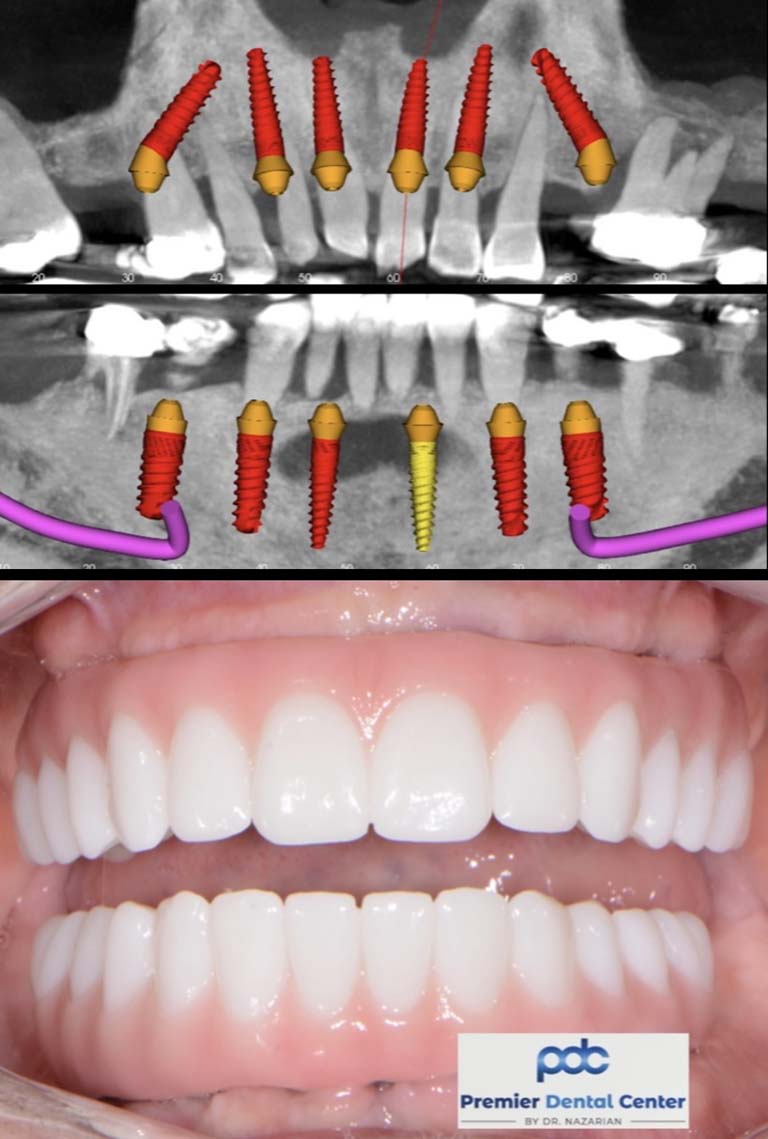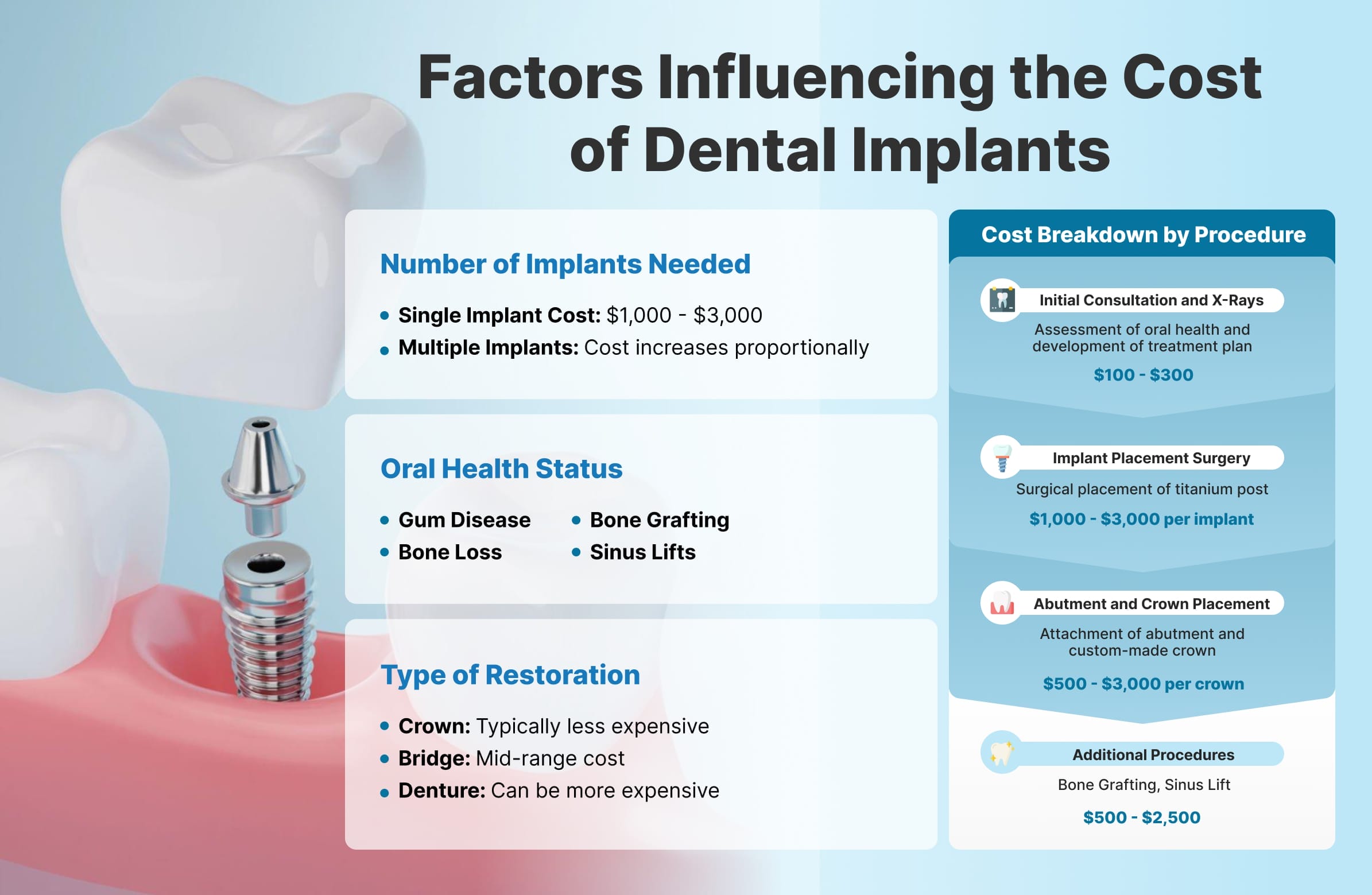About Dental Sense
About Dental Sense
Blog Article
The Only Guide to Dental Sense
Table of ContentsThe Main Principles Of Dental Sense The smart Trick of Dental Sense That Nobody is DiscussingThe Definitive Guide to Dental SenseLittle Known Facts About Dental Sense.
are medical devices surgically dental implanted into the jaw to restore a person's capability to eat or their look. They provide assistance for synthetic (phony) teeth, such as crowns, bridges, or dentures. When a tooth is lost as a result of injury or disease, an individual can experience difficulties such as rapid bone loss, malfunctioning speech, or changes to eating patterns that cause discomfort.Oral dental implant systems contain an oral implant body and dental implant abutment and may likewise consist of an abutment fixation screw. Root canal procedure. The dental implant body is surgically placed in the jawbone instead of the tooth's origin. The oral implant abutment is typically attached to the implant body by the joint addiction screw and prolongs with gum tissues into the mouth to support the attached fabricated teeth
(https://pastebin.com/u/dentalsense1)Framework of The Dental Implant System picking dental implants, talk with your dental company regarding the possible benefits and threats, and whether you are a candidate for the procedure. Things to think about: Your total health is an essential variable in determining whether you are a good prospect for oral implants, the length of time it will take to heal, and for how long the dental implant may stay in area.
Smoking cigarettes might affect the recovery procedure and decrease the lasting success of the dental implant. The healing process for the dental implant body might take numerous months or longer, throughout which time you typically have a momentary abutment instead of the tooth. the oral implant treatment: Meticulously adhere to the dental health instructions provided to you by your oral copyright.
What Does Dental Sense Mean?
Implant failing can result in the need for another procedure to fix or change the dental implant system. Brings back the capacity to eat Recovers cosmetic look Assists keep the jawbone from shrinking as a result of bone loss Preserves the health and wellness of the bordering bone and gum tissues Aids maintain surrounding (neighboring) teeth secure Enhances high quality of life Damage to bordering natural teeth during implant placement Injury to the surrounding tissues throughout surgical procedure, such as sinus opening Injury during surgery (for instance, fracture of surrounding jawbone) Inadequate function, such as seeming like the teeth do not bite together usually A sensation that the tooth is loose or turning in location arising from a joint screw loosening up Implant body failure (looseness of the implant body) due to systemic infection, which might be most likely in individuals with uncontrolled diabetes mellitus due to local infection in bone and periodontals supporting the dental implant body because of delayed healing, which might be much more most likely in individuals that smoke Trouble cleaning the periodontals around the dental implant, resulting in inadequate dental health Without treatment gum disease Post-surgical feeling numb as a result of nerve impingement or damage Constantly inform healthcare providers and imaging specialists that you have oral implants prior to any magnetic resonance imaging (MRI) or x-ray treatments.
FDA is not mindful of any kind of adverse events reported for MRI or x-ray procedures with dental implants. Dental implants systems are typically made of materials that follow international consensus criteria of the International Organization for Standardization (ISO) or ASTM International. These requirements have information of what makes a risk-free product.

An oral implant is a structure that replaces a missing out on tooth. With screw-like gadgets, the cosmetic surgeon inserts a dental implant into the jawbone, and it acts as an anchor for a synthetic tooth, called a crown. A gadget called a joint attaches the fabricated tooth to the oral implant. The crown is customized to fit the person's mouth and match the shade of their teeth.
How Dental Sense can Save You Time, Stress, and Money.
Some individuals are not eligible for dental implant surgical procedure. It is for dental surgeons to operate individuals with: acute illnessuncontrollable metabolic diseasebone or soft cells disease or infectionIf these problems are resolved, a person Go Here can have the surgical treatment. In, oral specialists abstain from operating individuals with: If individuals with any one of the above undergo dental implant surgical treatment, there is a higher danger of the dental implant stopping working.

Oral implant surgical treatment is a personalized process. Offer you time to heal. Attach the blog post and last crown, bridge or denture.
Next, your specialist will meticulously put the oral implant into your jaw. Your cosmetic surgeon will certainly reposition your gums and close the incision with stitches. If your dental implant is near the front of your mouth, your dental expert will certainly make a momentary tooth for you to use until you heal. By doing this, you won't have a gap in your smile while you recover.
Some Ideas on Dental Sense You Should Know
During the recovery phase, your jawbone ought to fuse to the dental implant. This process can take anywhere from three to nine months.
As soon as your implant heals, your dentist can affix the abutment (small connector message) and your last repair (crown, bridge or denture). This typically takes concerning one hour to complete and may need a 2nd small surgical treatment. You shouldn't feel any kind of discomfort during your oral implant procedure because your service provider will utilize drug to numb your gum tissues.
Report this page